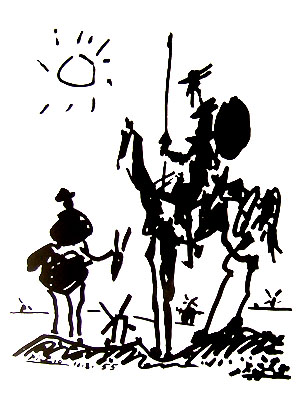Rituals
Rituals are simply the deliberate repeating of something to help achieve a desired positive feeling state. Rituals of one's choosing and agreement are a potentially very valuable aspect of self-nourishment. The area can be tricky, however, and there are some things to watch for.
One mistaken view of rituals is that some acts or sequences of acts have 'magical' effect. That is based on 'magical' thinking and is not at all what is meant here. Another belief is that the power of ritual is in the symbolism. Many rituals include symbolism, but the symbolism is by far the lesser of the effects.
The real effect of ritual is to more quickly bring about a desirable state of the autonomic nervous system, usually parasympathetic dominance. The autonomic system is slower to change than thoughts. While the autonomic nervous system can take many hours to relax, it can relax within a minimum of a few minutes, especially if a ritual or an anchor ( an environmental cue that has been associated with the state) has been employed That is why many meetings take place over a meal. The act of eating ( at least for people without chronic sympathetic shift) tends to shift the state of the person toward the parasympathetic state, in which they are more open to others. In general rituals are positive and have the added benefits of allowing several humans to reach a sociable and relaxed state with each other.
A ritual that seems meaningless is in fact meaningless for that person. The meaning comes not from the symbolism but from biological effect. Ritual effects require repetition--the first exposure will have mild effects only. It is possible also to be affected by a ritual but not realize it if one is paying attention only to one's thoughts and not to one's feeling state. Feeling state will of course in the long run help shape thought.
Ritual effects may be compared and contrasted to classical or Pavlovian conditioning, which uses the same basic mechanism. In classical conditioning, a substitute (like a bell) can stand in for a while for something that naturally stimulates the autonomic system (like meat). The effect decays quickly however, if the real thing is not re-introduced. In social and human rituals, however, the feeling state that the ritual helps bring about is 'real thing' that reinforces the ritual. The word ritual is sometimes used to describe a rigidly repeated behavior that has the function of warding off bad feelings, usually by dissociation of some sort. That is not the meaning meant here. Also using the promise of beneficial ritual to force others to repeatedly place themselves in abusive situations (for example always spending holidays with a dysfunctional family) gives rituals a bad name.
There is a term 'happy place' that is misunderstood. Often people only understand the idea of happy place as a mental image of happiness. Happy place has its origin as an actual location or setting in which a person experienced strong good feelings. Upon return to that place, good feelings (autonomic system change) can come back without further good fortune to explain them. This is akin to classical conditioning and has been used by wise people since time immemorial for comfort. Merely picturing such a place may have a weak positive effect, but for best effect, it is necessary to literally go to the happy place. The autonomic nervous system responds more readily to being in an actual place then to mental images or mental intention. The happy place phenomenon does require the person to have the capacity for pleasure.
